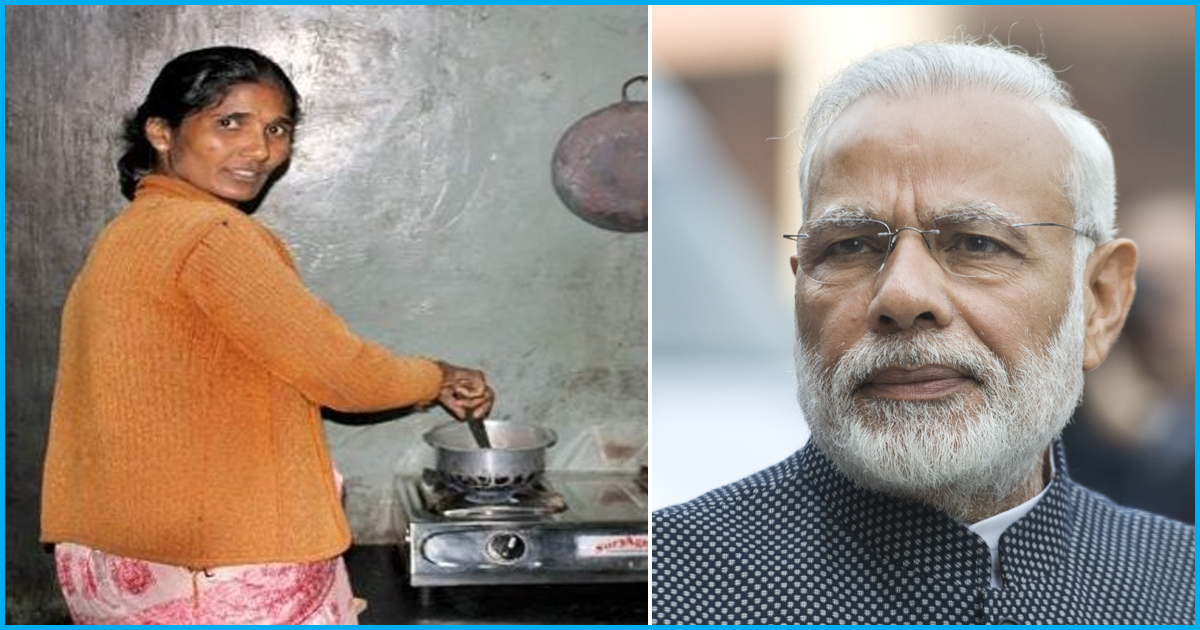
PM Modi's Ujjwala Scheme Appreciated By World Health Organization In 2018 Pollution Report
3 May 2018 7:22 AM GMT
In the report released by the World Health Organisation (WHO) on the global pollution database giving data on the air pollution levels across the world listed 15 most polluted cities, 14 out of which are from India. The situation has gone worse over the years – from 4 cities in world’s worst polluted in top 15 to 14 cities in top 15. However, the WHO report has mentioned and praised Prime Minister Narendra Modi’s Pradhan Mantri Ujjwala Yojana scheme. This scheme which was launched on May 1, 2016, intends to provide 5 crores free cooking (LPG) connections to below-poverty-line families over the coming three years. Since two years of its inception, the Pradhan Mantri Ujjwala Yojana has succeeded in providing free LPG connection to about 37 million women living below the poverty line (BPL).
The WHO report said, “For example, in just two years, India’s Pradhan Mantri Ujjwala Yojana Scheme has provided some 37 million women living below the poverty line with free LPG connections to support them to switch to clean household energy use.”

Use of LPG has been proved to be extremely environment-friendly. The carbon footprint of LPG is 50% lower than coal. LPG helps reducing carbon dioxide and black carbon emissions which are the second largest contributors of global warming.
Pradhan Mantri Ujjwala Yojana
After the Central Government appealed to people in 2015 to give up their subsidy on LPG to favour the less privileged and poor, around 1.13 crore household gave up their subsidy, which resulted in saving of Rs 8,000 crore. With such a good response Narendra Modi launched the Pradhan Mantri Ujjwala Yojana in Uttar Pradesh’s Ballia on May 1, 2016. This scheme aims to provide 5 crore free cooking (LPG) connections to below-poverty-line families over the coming three years. Nearly Rs 5,000 crore of subsidy saved is being used to provide LPG connection to the poor.
The inspiration behind this scheme came after the 2012 report of WHO was released, which highlighted the major health issues and problems caused by the use of traditional chulhas. The report added “Globally, 4.3 million deaths were attributable to household air pollution (HAP) in 2012, almost all in low and middle income (LMI) countries. The south-east Asian and Western Pacific regions bear most of the burden with 1.69 and 1.62 million deaths, respectively. Almost 600000 deaths occur in Africa, 200000 in the Eastern Mediterranean region, 99000 in Europe and 81000 in the Americas. The remaining 19000 deaths occur in high income countries.” Such reports made this implementation of LPG gas almost mandatory and this project was launched.
Also read:
Highest LPG Price Hike Ever: Cylinder To Cost Rs 86 More For Non-Subsidy Customers
Price Of Subsidised LPG To Increase By Rs 4 Per Month Till The Subsidy Is ‘Nil’: Govt
 All section
All section













